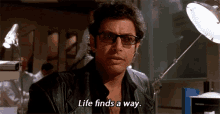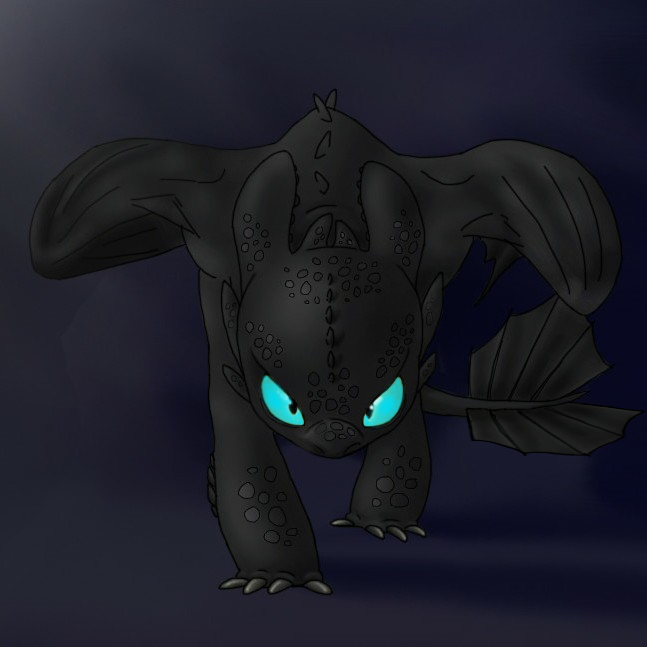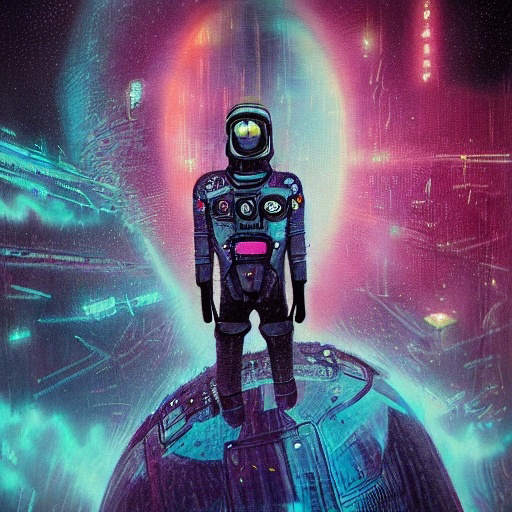
The last time I saw a Wizard of id comic strip was in the early 70s.
Best case scenario to be sure.
For sure.
But tbf it’s still a bold assumption that afte only a million years biodiversity would rebound to the point to support (mega)fauna like that again.
Hoping for the best.
Actually the fauna comes back really quick. After only a hundred years when nothing is maintenaned the plants will cover most of our infrastructure.
After probably 500 years most constructions are probably only hills.
No, not extinct species.
I don’t believe we will leave isolated, big, and diverse oasis of specimens to just repopulate vacant areas.
We are well into a huge (and particularly very fast) mass extinction event, sure only a few headline megafauna species get press coverage, but the amount of invertebrates alone that go extinct and in contrast a single or a few species temporary takes its place in turn expediting the imbalance levels & collapsing entire ecosystems is staggering.
Insect die offs really scare me, so many fruits and plants are pollinated by them, or things just up the food chain from them. Then I just can’t help imagining a chain of collapse from there.
I think humans will be the last living things to go unless we engineer our own extinction early.
I think humans will be the last living things to go unless we engineer our own extinction early.
Evolution happens as long as there is life. Unless we turn the planet surface into a giant ball of lava, it is impossible to kill all life and it will continue without us. Even if there is only bacteria left after we go, they will simply evolve into complex life all over again, in fact it’s not the first time that has happened. In the grand scheme of what life has withstood on this planet, humans are a speed bump at best.
Yes, debates don’t really center on the issue of sterilizing the whole planet (fyi there are deep-rock bacteria everywhere so “just” molten surface isn’t enough), but rather on the loss we are causing.
Ie ending species that without us would have no issue evolving & continuing to be part of the ecosystems.
Also from bacterial life to complex fauna its easily a billion years (+/- a lot).
Ie ending species that without us would have no issue evolving & continuing to be part of the ecosystems.
That’s not true though. Even the animals we’ve created, like cats and dogs, can live on just fine without us. As can most small and micro herbivores like mice, rabbits, certain songbirds, and most of the “pest” insects; as well as mesopredators (middle of the food chain predators) like foxes and the aforementioned cats and dogs. Plenty of plants are asexual and do not require external pollination, including many of the invasive plants that we can’t kill despite our best efforts.
Actually, invasive species in general are a major counterexample. We’ve been trying to drive many of them to extinction, they are not going extinct. Australia is trying to kill feral cats, that’s not working. The US spends billions on herbicides against invasive plants, that’s not working and many argue that it’s doing more harm to native plants in some cases than the invasive plants themselves. They also tried to kill European sparrows and starlings which are also not working. Same with fire ants. Same with invasive fish. Same with invasive seaweed and algae.
In fact, in environmental sciences which I majored in, there is increasing discussion on whether calling species “invasive” even makes sense. Humans are also part of the ecosystem and of “nature” despite us claiming to be the masters of it. We are subject to its laws just like all other life, so if a mite can hitch a ride on a bird across the ocean and that’s considered natural migration, why shouldn’t a mouse that hitches a ride on a human boat across the ocean be considered natural migration? There is no morality in nature, it just is and everything is fair game, so we really need not worry “for nature,” we should be worrying for ourselves about losing our place in it by going extinct. Adapt or die, that’s nature’s one and only rule, so if we don’t want to die we need to adapt and clean up our act basically.
Exactly. Plus the whole underwater portion of ecology we have basically no data on (yet it’s of huge global importance). Scary, sad, infuriating stuff.
Unfortunately I too think that we will outlive our consequences for long enough to take a proper mass extinction event levels of biodiversity collapse with us.
But let’s focus on the positive - biodiversity boom between mere 10 million years from now to like 50 or 100 million years from now (which in the scheme of things isn’t that long, just very unnecessary that it will come to that for something like capital/amassing of power of one species over others of the same species).
We have maintained huge megafauna populations though, who are ready and able to take over the moment we go. Cows, sheep, and yes, horses like shown in the comic, are prime examples. We’re also doing a damn good job of killing all their natural predators, namely wolves and big cats.
Horses have actually become an invasive species in some parts of the Americas and driving out native large herbivores. Ever heard of American wild horses? They’re technically “feral horses” because they did not exist in this hemisphere before Europeans came.
oh no, more pro-extinction on lemmy, fun…
You need only look at how our species treats one another, despite claiming to know better, to understand why. Endless styles of cruelty of the many by the few in the name of greed, gluttony, power lust, and schadenfreude. The few voices of sanity and compassion assassinated, mowed down, blacklisted, and threatened into contrition. Literally destroying civilization pumping carbon shit into the air, fully aware of what we’re doing, to continue stoking the ego scores of a handful of sociopaths.
If you’re proud of our species, good for you. Take the bliss, Cypher
I do think there’s something positive about being the only species we know of with the intelligence and knowledge developed over generations to even realize these things and much such judgements. The plants that filled the atmosphere with oxygen killing almost everything couldn’t know any better or do anything about it. Past species and humans before modern times changed their environments and caused extinctions without even knowing. And while we might not end up doing so, we do have the capabilities to do better.
I’ve thought about that and to me it makes it worse. We have glimmers of knowing better, of doing the right thing, just enough to demonstrate that we *can, * but 99 times out of 100 we don’t.
You can’t get angry at a lion for following it’s genetic programming, it doesn’t have the capacity for introspection about its nature. Its sentient, but not sapient. We can know better, with our cognitive abilities combined with tools of historical recording most of us do know better, but when presented the chance to take either our share of the pie with our brothers and sisters, or to take the whole pie and leave them hungry, we pick the latter like clockwork.
The tragedy is knowing that we have the capacity to be a great people that accomplishes wonders together, but we still choose to fight one another for the biggest banana pile like impulsive beasts almost every time throughout recorded history. We refuse to learn. We refuse to heed the lessons of history for longer than a single generation. We can glimpse enlightenment, but choose the easy dopamine hit. It’s maddening.
Are the horses a million years old or did humans go extinct recently and are they being snarky about it?
They are paleontologist supersmart-horses, many generations after their ancestors killed the last human.
They are also in a dome, decorated with a picture of mountains and a blue sky, that they set up to protect themselves from the remaining of the recent nuclear war.
I totally wanna read a short story about this now!
You just did!
Technically correct, which as we all know is the best kind of correct…
Ha ha, no. In a million years, mankind would have paved the entire planet’s surface, including the oceans. Our numbers would be in the hundred billions and most will live underground. The few elites would live on the uppermost levels and even have real gardens and plants. Wildlife would be extinct, save for a few robotic simulacra in the Imperial Zoo. Ironically, you would have to go to the Outer Colonies to see some animals that are extinct on Terra.
the cyberpunk 2077 universe just keeps looking more and more plausible every day, down to the corporate decisions and design
H.G. Wells would like a word. The Morlocks have some recipes to share.
An asteroid hit the earth and blanketed it in ash for ten thousand years, a force many times bigger than all the nukes humanity could ever hope to build, and life still thrived eons later. The Earth and nature doesn’t need saving, we need saving.
Don’t forget that we’re still apart of the ecosystem and “nature” and subject to every single one of its laws, including the biggest one: adapt or die.
That’s not even the worst one, before the dinosaurs a large volcano in What is now Siberia errupted, throwing Earth’s climate into a catastrope, the oceans became stagnant and putrid, belching poisonous gases from anaerobic bacteria across the land and sea, an estimated 90% of all life on Earth was smothered by the event.
It’s called the End Permian extinction and it’s the closest life on earth has come to being snuffed out entirely. Though for some reason it’s forgotten about a lot.
life still thrived eons later
After a 30k year reset period, sure.
30k years is nothing compared to the lifetime of the Earth though
But its everything compared to the lifetime of human civilization.
It’s like rain on your wedding day
or getting booed, saw that happen once. I don’t think i’ll ever forget it. i literally came armed to my own wedding because No One was going to get away with booing at my wedding. But hey, to each their own insult.
i like music too :D
it figers
Wall-E irl
The fact that you mixed elements of utopia and dystopia together makes it rather difficult to infer what opinion on the comic you’re trying to convey
What part of that was utopian?
Maybe from the perspective of the few rich elites its utopian? Lmao
In a million years we’d have had a Dyson sphere for nearly a million years and colonized almost the entirety of the galaxy already.
We unfortunately wouldn’t have colonized Andromeda quite yet though.
Any utopia first requires the basis of free energy. Dyson spheres are the start and the logical first outcome for any sufficiently advanced civilization. Fusion reactors being used as needed where we can’t donate from the former.
The rest is all politics. The vast majority of people are good. When everyone isn’t fighting for the same resources, the population of earth stabilizes in 2100 to about 11 billion people.
The growing pains until then through space colonies and terraformers will be admittedly rough though. Space radiation and the classism in that vacuum will be terrible for the poor and disenfranchised.
https://science8sc.weebly.com/uploads/1/3/2/7/132773018/milky-way-galaxy-light-years_orig.jpg
https://interestingengineering.com/science/what-would-it-take-to-create-a-dyson-sphere
https://www.youtube.com/watch?v=HpcTJW4ur54
deleted by creator
Good ending
A million years? That very generous (งツ)ว
I believe it’s more like a hundred thousand years for humans on earth to go extinct, and another nine hundred thousand to clean the traces.
Whatever comes after us will be a consequence of us. Sort of like how all our modern bird species are echoes of the giant lizards of the crestatous period.
The world will never be “clean” of humanity’s traces. No more than it is clean of trilobites that gave us all this limestone or the carboniferous plants that gave us coal and oil.
The future will be whatever species are most fit to live in the world we have created.
Or a hundred (not thousand) to become transhuman and have every short living species forget we existed.
(my regards to SkyNet, StarlinkNet, The Matrix, or whatever)
“why does this grass taste like plastic?”
Not that they know what plastic is but ya know.
Here is an alternative Piped link(s):
Earth’s new dominant life form
Piped is a privacy-respecting open-source alternative frontend to YouTube.
I’m open-source; check me out at GitHub.
That’s cute and all, but it ain’t gonna be birds and deer who gets life off this rock once the Sun starts threatening to swallow it in a few billion years. We’re screwing up badly in the short term, but we’re the only hope Earth life has in the long term.
The heat death of the universe is inevitable anyway 🤷♂️
So? Death from old age is inevitable too, that doesn’t mean I’m going to stop breathing or eating. All of life is just postponing the inevitable, but just because the inevitable is inevitable doesn’t mean we should stop postponing.
Earth will become a molten blob in a few billion years… then over a billion billion billion billion billion billion billion billion billion billion times later…
Whatever lives on Earth in a billion years from now, if it spreads out, will have a few billion times more billions of years to live.
You’re assuming an eternal universe (as opposed to, e.g., a big crunch), which seems likely given the observed accelerating expansion of the universe.
deleted by creator
deleted by creator
Love seeing someone act like a smug know-it-all while being ignorant to a pretty basic concept in cosmology.
deleted by creator
deleted by creator
I don’t understand if this is sarcasm or if some people are actually that dense.
eh, birds are already very intelligent. one of the species wil probably end up creating technology at some point (assuming all humans die without ending all life on earth)
There is enough time for another intelligent species to evolve after us, the problem is that we’ve already used up all the easily accessible fossil fuels. That means they won’t have the energy sources necessary to have an industrial revolution and will be stuck at a pre-industrial tech level forever (or rather until the oceans boil off).
Is that true? My understanding was that there’s still plenty of coal, oil, etc, we just can’t keep burning it cause of the greenhouse effect
There are still plenty of fossil fuels, but we’ve used up the deposits that are easily accessible with 1700s technology.
Ah, thanks. I guess our technology probably wouldn’t be around by the time another species replaces us, but it’d be cool if they could just pick up where we left off technologically (of course, they’d have to make good choices to not end up like we did except way faster, and I don’t have that much optimism lmao).
Then again, I wonder if there’d be new fossil fuel deposits by then. I mean, if the conditions were right and given enough time. I don’t know a whole lot about how this all works, it’s fun to think about though.
Then again again, maybe if they had no fossil fuels, they could sidestep the whole anthropogenic (pls don’t bully my spelling, I have no idea) climate change problem. I’m sure it would take longer, but maybe they’d eventually figure out how to produce lots of energy without ruining the planet for themselves (or at least ruin it differently than we did). ¯\(°_o)/¯
I wonder if there’d be new fossil fuel deposits by then.
Probably not. Coal is basically trees that didn’t rot, and the reason they didn’t rot is that there were no microorganisms that could digest wood at the time. Between the evolution of wood and the evolution of organisms that could digest it, dead trees would just pile up on top of each other and sink into the ground under the weight of new layers of dead trees above them. Now that there are microorganisms that digest wood and dead trees rot away, new coal is not forming.
Oil does continue to form in some ocean areas where there is a layer of water without any oxygen on the ocean floor. Since these areas support no life, any organic remains that descend to the bottom (mostly plankton) remain unconsumed and eventually get buried and turn into oil. But it is a slow process. Estimating oil reserves is notoriously difficult, but it seems there’s about as much left in the ground as we’ve burned in the last fifty years. So in other words, four billion years of oil formation gets you about a century or two of industry. Since the Sun is about halfway through its lifespan, that means the Earth can potentially create enough juice for one more industrial civilization like ours. That’s assuming that those oil reserves are allowed to build up and don’t just get used up piecemeal by smaller civilizations arising in the interim. And also assuming that that final civilization is even able to make use of that oil, which is much harder to handle than coal (extraction, refining, transportation, etc.), without using coal as a stepping stone. And also assuming that no anaerobic microorganisms evolve that can survive on the ocean floor without oxygen and consume those organic remains, which could put a stop to oil formation just like wood-eating microorganisms put a stop to coal formation. Yeah, that seems like a lot of ifs to me…
damn that’s interesting. Thanks for the science! :)
It’s only recently been proven untrue… IIRC… because it apparently turns out crude oil is actually the poop of a particular ancient microbe that is still around and that’s partially (along with Oil Fracking) why we still have fossil fuels and why a far future non-human civilization will have plenty of fossil fuels to work with.
You’re right, though, we have 5x more fossil fuels than have been burnt since the beginning of the industrial revolution. If we DO use the rest, the climate would be so unrecoverable that 99% of multicellular life will die, but even the most corrupt oil executive would be dead years before the last animal because most - especially the wealthiest - humans need agriculture to eat, and if shit hits the fan the poor outnumber the rich and the crop-killing pests outnumber the poor.
deleted by creator
When the tectonic plates collide again to form another supercontinent, it will create enough heat to kill off most, if not all, mammals. And it will happen before the sun destroys everything, probably in around 250 million years or so.
250 million years?
Damn, guess I don’t need to bother cleaning
How?
The collision itself will generate heat. And a super continent with less water will also absorb more heat energy without having water near its center.
Mammals’ Time on Earth Is Half Over, Scientists Predict https://www.nytimes.com/2023/09/25/science/future-earth-warming-mammal-extinction.html?unlocked_article_code=i-Vz9jIKNFOAz9W461kSfuXdwSaNLqY1OA6-RZUjsXXCFqdC3ZYi5fzATecJES9S5U55iemPY0VVELjOxBte3G2-M5XW3LZ5x0wuvCGDe85590sumzR9EYMPibkT_EUEnWQ65UT0fgYejXoFiqiwwLPaO5VtNWlz187tW6MRjycS3Q4iSAbvCHj4Ga9QI6WR-xod26K-0yKDaHB_iqod3s9o3MBh722dNZmHIUBcVwG_iJ-ocfLFLQFJrSs2kS0JihLKWpETwiCd9EcgcbwCh58HVCY1sN0wg-wX1ThT0TbY5CZCdDXsKwQYsG-F6efLTTF0aSaRxIudb1g9WoWdhmRF4NBChEigjxDOJO2NM2Y2&smid=nytcore-android-share
Interesting read thanks for the link. Had heard none of that before.
deleted by creator
In the year one million and a half/
Humankind is enslaved by giraffes/
They will pay for all their misdeeds/
When the treetops are stripped of their leaves!
Of course, the year one million and a half is a mere 997,977 years from now. And 996,990 years from when they used the time machine.
deleted by creator
I would have also accepted:
“What are humans?”
This made me think of the time machine song from Futurama. https://youtu.be/LE1drY3A418
Here is an alternative Piped link(s):
Piped is a privacy-respecting open-source alternative frontend to YouTube.
I’m open-source; check me out at GitHub.
🎶 We are a fluke
of the universe.
We have no right to be here.
And whether we can hear it or not,
The universe
is laughing behind our backs. 🎶Deteriorata! I love that “song!”
Thanks a loot, I didn’t known it !
You’ll see it’s all a show
Keep ‘em laughin’ as you go
Just remember that the last laugh is on you!

For some reason I read this comic with voices from asdfmovie




















